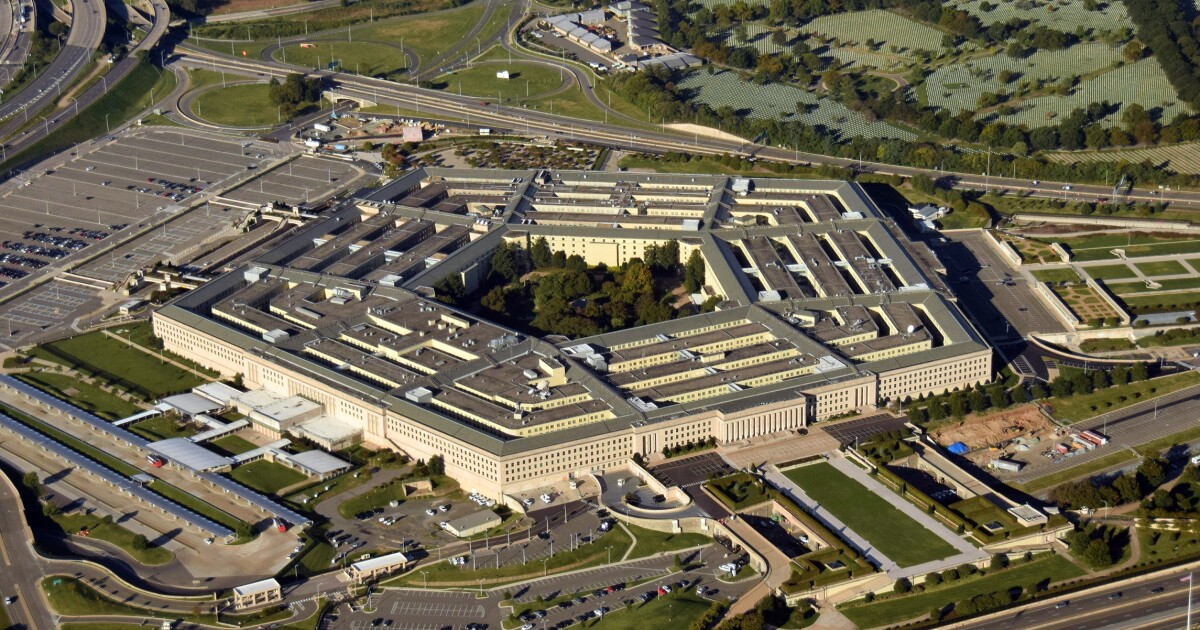

The House and Senate Armed Services committees advanced the $886 billion National Defense Authorization Act for fiscal 2024, each drafting their own version of next year’s defense bill at the end of June.
The Republican-led House Committee members cleared the legislation in a bipartisan effort, with a 58-1 vote on June 22, possibly heading to the full House floor next week for debate. According to a press release, the Committee on Rules can meet during the week of July 10 for floor consideration of the bill.
JUSTICE JACKSON MAKES HER MARK IN BLOCKBUSTER SUPREME COURT TERM
Rep. Ro Khanna (D-CA) was the sole opponent of the bill, voting against passing the legislation to the floor in 2021 and 2022 as well, marking his seventh vote overall on the NDAA as a member of the House Armed Services Committee.
Khanna told the Washington Examiner he was “proud” to be the only “no” vote, saying, “We’re on track to a $1 trillion defense budget and over half of this spending goes to defense contractors who have a history of price gouging.”
“I’ve been fighting to cut wasteful defense spending since my first year in office, including calling for the Department of Defense’s Inspector General to investigate TransDigm for price gouging and leading a hearing in the House Oversight Committee that resulted in the company returning $16 million to American taxpayers,” Khanna said.
The Senate Armed Services Committee, which voted 24-1 to advance their NDAA bill on June 23, said they considered 445 amendments and adopted 286 of them during the subcommittee and full committee markups of the legislation in a press statement.
The legislation as amended “expresses the sense of the Senate that there are growing national security concerns that require additional funds beyond the defense spending limit and urges the President to send emergency supplemental funding requests to address those concerns, to include continued support for Ukraine, additional munitions production, and additional naval vessels and combat vehicles,” as stated in a Senate committee summary.
The Senate’s draft grants $844.3 billion for the Department of Defense and $32.4 billion for national security programs for the Department of Energy. Six billion dollars were allocated for general transfer authority. The proposed budget for the DOD is $2 billion more than President Joe Biden administration’s request for discretionary DOD spending, which he unveiled in March, requesting $842 billion. The House approved an $886 billion total.
The Biden administration’s plan, which increased the budget by around 3% from fiscal 2023, would bolster the “civilian workforce as a critical contributor to the Nation’s security” and “upgrade capabilities by redirecting resources to cutting-edge technologies in high-priority platforms.”
Both armed services committees from the House and Senate approved Biden’s pay increases for military service members, a potential of a 5.2% increase in 2024, marking the highest military pay raise since 2002.
Technology expansions are present in both drafts, aimed at extending the Pacific Deterrence Initiative through fiscal 2023. Additional support for DOD science and technology laboratories is included as well.
“I’m pushing for a greater investment in cybersecurity, AI, quantum computing, space, and naval superiority in the Pacific,” Khanna said. “Instead of overpaying defense contractors, we should be making investments in technology to strengthen our national security and prepare our military for the threats Russia and China pose in the 21st century.”
“If Republicans want to reduce our nation’s debt, they should join me in reducing wasteful spending on defense contractors at the Pentagon,” Khanna said.
Biden’s full budget request of $300 million in funding for fiscal 2024 and appeal to extend the Ukraine Security Assistance Initiative through fiscal 2027 was approved by both committees.
Rep. Matt Gaetz (R-FL) launched several amendments to the bill, some of which included reducing aid to Ukraine, a move the Florida representative has supported in Congress in the past. Gaetz introduced an amendment to create an independent inspector general to oversee Ukraine aid, according to a press release.
“Hemorrhaging billions of taxpayer dollars for Ukraine while our country is in crisis is the definition of America Last,” Gaetz said in 2022.
Each bill approved new additions for the Space Force, updating their personnel system and pushing for the service to become a “single-component military service,” allowing the newest branch of the armed forces to have more flexibility to address funding as needed.
“The subcommittee further supports modernizing the U.S. missile defense architecture against evolving threats, while providing congressional oversight to ensure taxpayers’ dollars are well invested,” the Senate draft states, noting space is becoming a “contested domain among near-peer rivals.”
Biden’s proposal would strengthen the Department’s environmental justice mission, giving $54 million to the Office of Economic Impact and Diversity, boosting several diversity, equity, and inclusion programs, which some Republicans have strongly objected to.
CLICK HERE TO READ MORE FROM THE WASHINGTON EXAMINER
“We bleed green and fight for the same flag,” Rep. Mike Waltz (R-FL) tweeted, touting the House passing several of his amendments, such as recommending a review of DEI programs and barring funding for critical race theory at the U.S. service academies.
“DoD should be mission and merit-focused, not focused on turning our ranks against each other based on skin color,” Waltz added.



